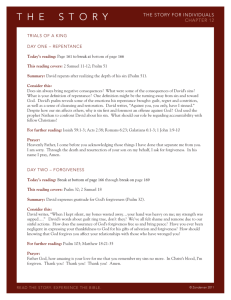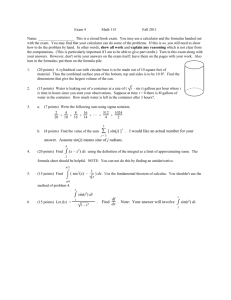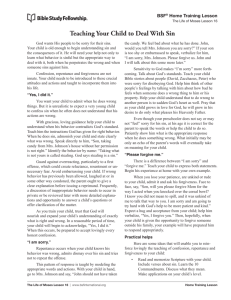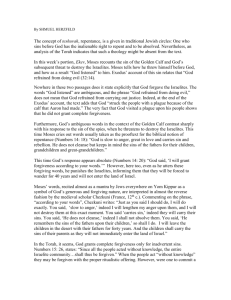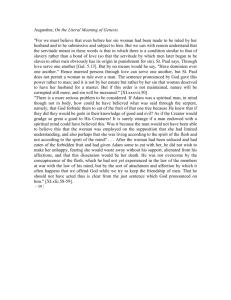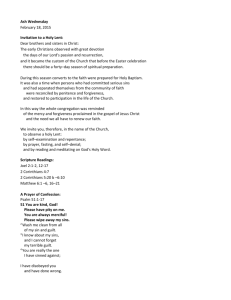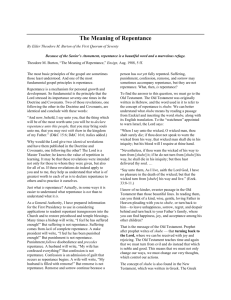High Holy Days: A Criminal Justice Study Guide On Forgiveness
advertisement
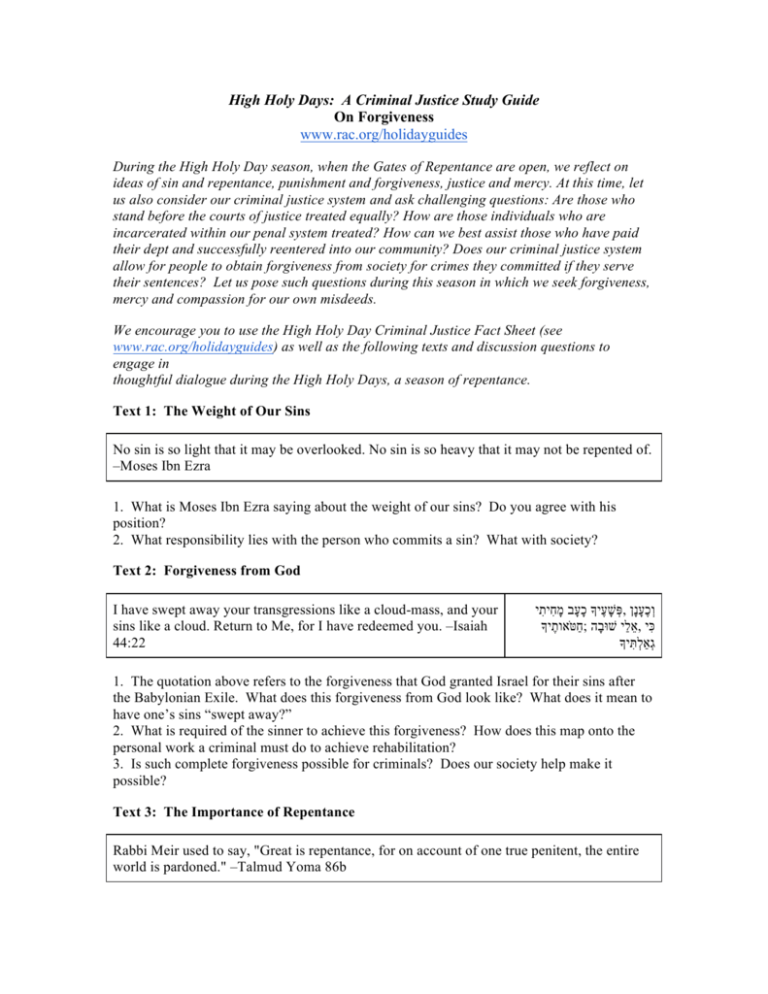
High Holy Days: A Criminal Justice Study Guide On Forgiveness www.rac.org/holidayguides During the High Holy Day season, when the Gates of Repentance are open, we reflect on ideas of sin and repentance, punishment and forgiveness, justice and mercy. At this time, let us also consider our criminal justice system and ask challenging questions: Are those who stand before the courts of justice treated equally? How are those individuals who are incarcerated within our penal system treated? How can we best assist those who have paid their dept and successfully reentered into our community? Does our criminal justice system allow for people to obtain forgiveness from society for crimes they committed if they serve their sentences? Let us pose such questions during this season in which we seek forgiveness, mercy and compassion for our own misdeeds. We encourage you to use the High Holy Day Criminal Justice Fact Sheet (see www.rac.org/holidayguides) as well as the following texts and discussion questions to engage in thoughtful dialogue during the High Holy Days, a season of repentance. Text 1: The Weight of Our Sins No sin is so light that it may be overlooked. No sin is so heavy that it may not be repented of. –Moses Ibn Ezra 1. What is Moses Ibn Ezra saying about the weight of our sins? Do you agree with his position? 2. What responsibility lies with the person who commits a sin? What with society? Text 2: Forgiveness from God I have swept away your transgressions like a cloud-mass, and your sins like a cloud. Return to Me, for I have redeemed you. –Isaiah 44:22 שׁעֶיָך ָכעָב ָמחִיתִ י ָ ְפּ, ְו ֶכ ָענָן ֵאלַי שׁוּבָה ;חַטּ ֹאותֶ יָך, כִּי גְאַלְתִּ יָך 1. The quotation above refers to the forgiveness that God granted Israel for their sins after the Babylonian Exile. What does this forgiveness from God look like? What does it mean to have one’s sins “swept away?” 2. What is required of the sinner to achieve this forgiveness? How does this map onto the personal work a criminal must do to achieve rehabilitation? 3. Is such complete forgiveness possible for criminals? Does our society help make it possible? Text 3: The Importance of Repentance Rabbi Meir used to say, "Great is repentance, for on account of one true penitent, the entire world is pardoned." –Talmud Yoma 86b 1. What is the importance that Rabbi Meir places on repentance? Why do you think that he says this? Is repentance this important in your life? Text 4: What Is Repentance? What does it mean to repent? to make inward acknowledgement of my sin to be truly heartbroken over my sin to be deeply ashamed of my sin to make open confession of my sin to make full restitution for my sin to seek reconciliation with others for my sin to resolve firmly not to duplicate sin to ask Divine aid in avoiding such duplication to beg God's forgiveness for my sin to find the burden of my sin now removed to know the comfort of God's pardon and the sweetness of atonement to be tempted to repeat the same sin, but overcome with God’s help such repetition to find it more difficult now to sin than not to sin —Rabbi Herschel Matt 1. What are the steps that a person goes through to achieve repentance? How is the person changed by the process? 2. Is this process easy for you? What do you need in order to achieve repentance? 3. Does our society make it easy for criminals to achieve repentance? Text 5: A New Identity Irrespective of the degree of awareness, several spiritual factors come together in the process of spiritual conversion. Severance is an essential factor. The repentant cuts himself off from his past, as though saying: "Everything in my life up to this point is now alien to me; chronologically or historically it may be part of me, but I no longer accept it as such." With a new goal in life, a person assumes new identity. Aims and aspirations are such major expressions of the personality that renouncing them amounts to a severance of the old self. The moment of turning thus involves not only a change of attitude, but also a metamorphosis. –Rabbi Adin Steinsaltz 1. This text asserts that the repentant cuts himself off from his past ways, sins, and self. Is this possible? What does it mean to disassociate from one’s past self? 2. If a criminal achieves this kind of self-understanding, is society ready to forgive this person? If not, why not?

